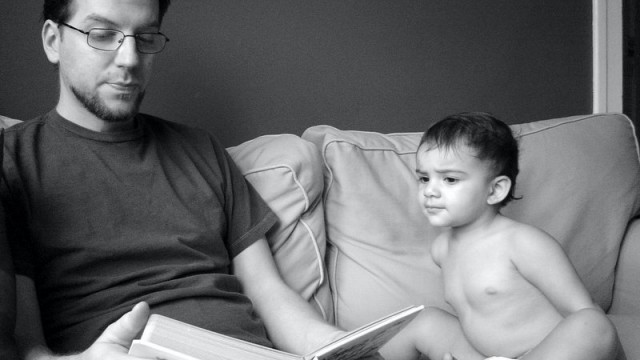Reposted from FathersWorkandFamily.
My colleague’s story illustrates the negative ripple effects that a non-supportive employer has, not just on working dads, but also on their spouses, kids, and their own bottom line.
The other day, I was chatting with a new colleague. She had just returned from the workforce after having opted out of her career due to family demands. Her two young children had health problems, meaning that she and her husband needed some family support from their employers- but never received it.
Her husband worked for a very old-school non-family-friendly company and was unable to compromise any of his work hours, use telework or make the informal arrangements that are often so helpful in balancing work and family demands. Family accommodation would have a huge impact on his standing in the company and his career. But his job did pay well and had good benefits. So he stuck it out at work, trapped in a provider role that severely limited the amount of time he had for family.
My colleague quit her job and spent the past 5 years as a hardworking SAHM. She would have rather kept working, but had to compromise her career. Both spouses lost out on one of their important life priorities, and their kids lost out on dad time.
Sadly, this story is rather common- family demands spike, necessitating more parental involvement. Since many workplaces and our society are not conducive to shared parental care, very often one spouse works far more than they would prefer, and the other works far less. Both are trapped into traditional gender roles that neither of them signed up for. (See here and here for great articles about this phenomenon).
Fast forward a few years. My colleague’s husband left his unsupportive employer and joined a new, much more progressive firm. He can now work remotely when he needs to, and his bosses and the corporate culture supports his family time and commitments. He can be successful in his career and an actively involved father.
My colleague doesn’t have to shoulder the entire parenting load herself anymore, and, well, she’s back at work- just as she always wanted to be.
I’m so happy their story has a happy ending. They were able to find their happy balance because of employer support. I wish we all could be so fortunate, and look forward to the day when attaining success in career and family does not depend on the whims of management.
To recap, because her husband’s first employer was non-supportive:
- She had to quit her job
- Their kids missed out on time with their father
- Her husband felt trapped at work and unable to live close to his life priorities
- He eventually quit and found work somewhere more supportive
- The company lost a good employee
- He loses, she loses, kids lose, employer loses
Now that he has a supportive employer:
- She goes back to work (for an awesome employer, I may add)
- Their kids get plenty of time with their dad
- Her husband has a job that allows him the freedom to also be the involved dad he always wanted to be
- He intends to stay at this company forever
- His new company has a loyal, dedicated long-term employee
- He wins, she wins, kids win, employer wins
Some employers are starting to “get it,” but more work needs to be done. We need to keep talking about working fathers’ issues- not just because it affects dads, but because it affects all of us. The more conversations we have with coworkers, friends, colleagues, and, yes bosses, the better off we all will be. The more it is discussed, the importance of workplace support for fathers becomes more and more evident.


